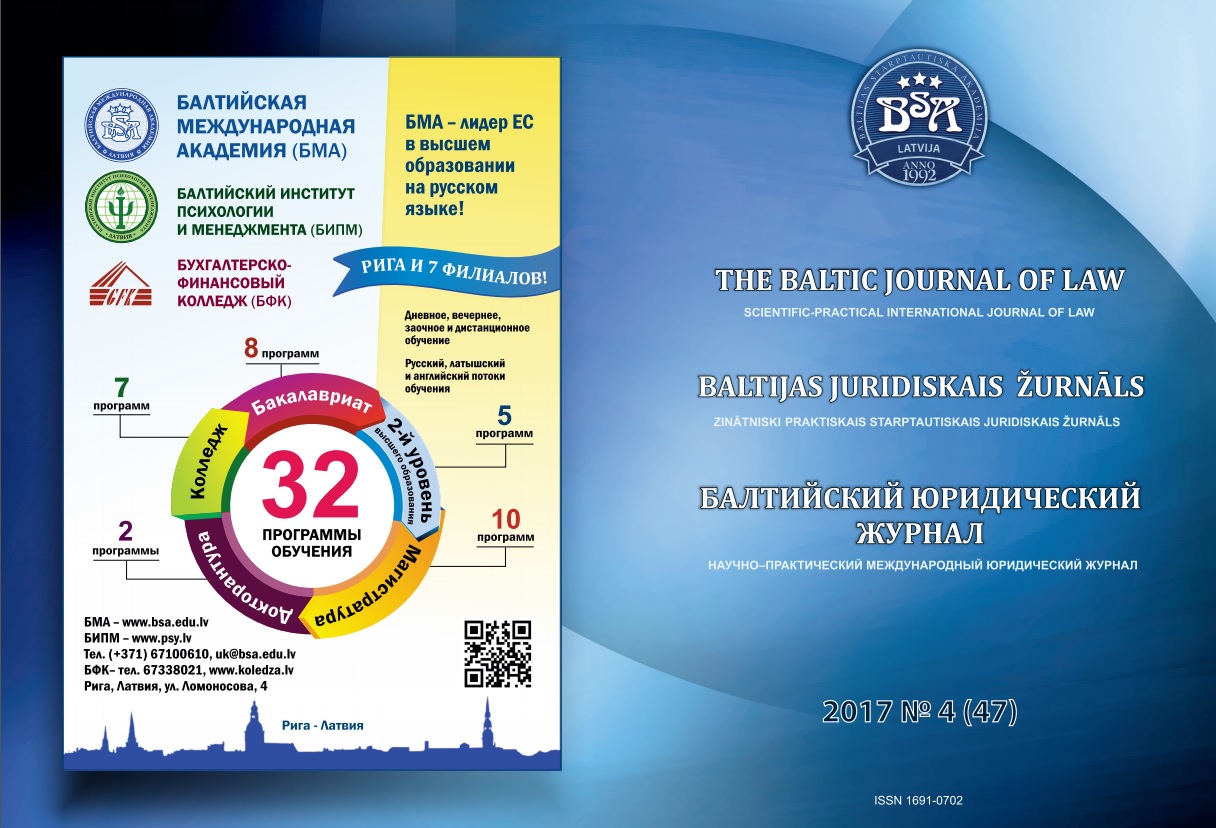Overview of canon law in the Post-Soviet Space. Part 2
Overview of canon law in the Post-Soviet Space. Part 2
Author(s): Kristaps ZarinsSubject(s): Law, Constitution, Jurisprudence, Canon Law / Church Law
Published by: Baltijas Starptautiskā akadēmija
Keywords: post-socialist states; canon law; religious organizations; Latin Church; Codex Iuris Canonici; Praeter ius; I integro;
Summary/Abstract: Dealing with the subject of this paper, the main emphasis is placed concurrently on the philosophy and the scope of historical canonic law, while the author attempts, by means of this study, to illustrate those many nuances that could also be relevant to contemporary scholars of law in the above field for the recent 20 years. The study provides a joint assessment of both the policy of law and the position adopted by post-socialist states in respect of their national law in the process of transformation into a democratic society, and also the seemingly distant religious policy of those postsocialist countries, including its role in and influence on the regulatory framework, and it also proposes to take a look at canon law – the last living reflection of Roman law.The form and content of canon law itself can be the subject of study and discussion of how it is subordinated to, consistent with and functions alongside Roman law, this monument of history of law, and of its effect on modern legal thought; at the same time, it may also be concluded that, if we look at those provisions of Roman law which still remain in force, the experience accumulated in the studies of Roman Law over hundreds of years is only a facet of the body of law. Specifically, those are the provisions of canon law which reveal themselves through the values, principles and customs of law which are subjected to it transcendentally and structurally, also through the inter-polar aspect of international law, in the domain of both public and the private rights.It is naturally understood that as the national political regime changes, the general legal thought and beliefs change as well, new models and also sources of formation of post-socialist societies are formed, studied and sought for; specifically the historical period of development of law is often invoked, and if so, then the aim and result of this study is to try to clarify the relationship of post-socialist countries with religious organizations as the creator of the chief philosophical motives of law during the times of change. In this situation, this paper is also aimed at the study of a range of specific questions, namely, the genesis of elements of Canon Law and its impact on economic, social and, naturally, on legal reform in the 1990s.
Journal: BALTIC JOURNAL OF LAW/ BALTIJAS JURIDISKAIS ŽURNĀLS /БАЛТИЙСКИЙ ЮРИДИЧЕСКИЙ ЖУРНАЛ
- Issue Year: 47/2017
- Issue No: 4
- Page Range: 80-87
- Page Count: 8
- Language: English

